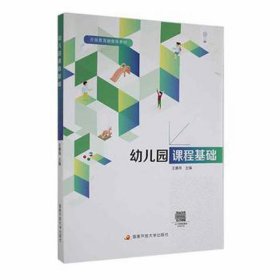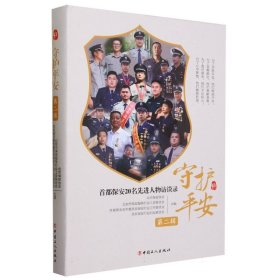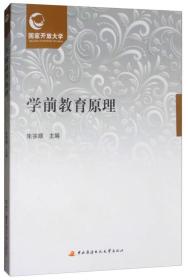
“一带一路”简明读本(英)
¥ 10.62 全新
库存2件
作者王灵桂;王金波;谢来辉
出版社五洲传播出版社
出版时间2019-04
版次1
装帧其他
货号Y
上书时间2024-12-17
- 最新上架
商品详情
- 品相描述:全新
图书标准信息
- 作者 王灵桂;王金波;谢来辉
- 出版社 五洲传播出版社
- 出版时间 2019-04
- 版次 1
- ISBN 9787508534220
- 定价 118.00元
- 装帧 其他
- 开本 16开
- 纸张 轻型纸
- 页数 251页
- 字数 120千字
- 【内容简介】
-
“一带一路”倡议提出至今已有5年,尽管提出的时间很短,却在世界上引起了巨大的反响,不仅过去从未有过的新名词不断涌现,大到人类命运共同体、中国特色大国外交等等,小到“五通”、亚洲基础设施投资银行等等操作层面的话语,同时经过中国与沿线国家的共同努力,“一带一路”也正在改变未来的世界发展与治理走向。
为方便大众快速了解“一带一路”倡议的来龙去脉,中国社会科学院国家全球战略智库编辑整理了这个简明读本。
It has been five years since the Belt and Road Initiative (BRI) was first proposed. Although it was proposed only a short time ago, it has caused great repercussions in the world. Today, new nouns that had never been used before keep springing up, from large ones such as the community of shared future for mankind, and the major-country diplomacy with Chinese characteristics, to the operation-level terms such as “five major goals of connectivity,” and the Asian Infrastructure Investment Bank (AIIB). At the same time, through the joint efforts of China and countries along the Belt and Road, the BRI is also changing the direction of development and governance of the future world.
In order to facilitate the audience to quickly understand the context of the BRI, the National Institute of International Strategy, Chinese Academy of Social Sciences, compiled this book of brief introduction. - 【作者简介】
- 中国社会科学院国家全球战略智库是中国政府2015年底确定的25家高端智库试点单位之一,属于试点单位中国际政治类专业高端智库。
- 【目录】
-
Contents
Chaper One The Contribution of China’s Reform and Opening up to the World and the Birth of the BRI
1. China’s Historic Contribution to the World through Reform and Opening up ……10
2. Construction of an open economy and the BRI …………………………12
3. China’s economic transformation and the BRI …………………………14
4. Innovation-driven development and the BRI ……………………………16
5. Responsibilities of a Major Country and the BRI ………………………18
6. Major-country Confidence and the BRI …………………………………20
7. Development Deficit and the BRI ………………………………………22
8. Peace Deficit and the BRI ………………………………………………24
9. Governance Deficit and the BRI …………………………………………26
Chaper Two History of the Silk Road
10. Where Did the Name Come from ………………………………………30
11. A Brief History of the Silk Road ………………………………………32
12. The Overland Silk Road ………………………………………………34
13. The Maritime Silk Road ………………………………………………36
14. The Silk Road and the Exchanges of Countries ………………………38
15. Spirit of the Silk Road …………………………………………………40
Chaper Three Birth and Framework of the Concepts
16. Proposal of the BRI concept ……………………………………………44
17. The Historical Background of the BRI …………………………………46
18. Framework of the BRI …………………………………………………48
19. Basic Connotations of the BRI …………………………………………50
20. Basic Principles of the BRI ……………………………………………52
21. Partners of the BRI ……………………………………………………54
22. Overall Plan for the BRI ………………………………………………56
23. Directions of BRI Cooperation …………………………………………58
24. Cooperation Mechanisms under the BRI ………………………………60
25. Organizational Architecture of the BRI ………………………………62
Chaper Four The “Five Roads”
26. The BRI and the Road for Peace ………………………………………66
27. The BRI and the Road of Prosperity ……………………………………68
28. The BRI and the Road of Opening up …………………………………70
29. The BRI and the Road of Innovation …………………………………72
30. The BRI and the Road Connecting Different Civilizations ……………74
Chaper Five “Five Factors of Connectivity”
31. Policy coordination ……………………………………………………78
32. Facilities Connectivity …………………………………………………80
33. Unimpeded Trade ………………………………………………………82
34. Financial Integration ……………………………………………………84
35. People-to-people Bond …………………………………………………86
Chaper Six Six Major Economic Corridors
36. China-Mongolia-Russia Economic Corridor …………………………90
37. New Eurasian Land Bridge ……………………………………………92
38. China-Central Asia-West Asia Economic Corridor ……………………94
39. China-Indochina Peninsula Economic Corridor ………………………96
40. ChinaCPakistan Economic Corridor ……………………………………98
41. BangladeshCChinaCIndiaCMyanmar Economic Corridor …………… 100
Chaper Seven Some of the Theories and Concepts of Diplomacy with Chinese Characteristics
42. Major-country Diplomacy with Chinese Characteristics …………… 104
43. A New Type of International Relations ……………………………… 106
44. A New Type of Major-country Relationship ………………………… 108
45. A Community of Shared Future for Humankind …………………… 110
46. Two Centenary Goals ……………………………………………… 112
47. Win-win Cooperation ……………………………………………… 114
48. Regional Comprehensive Economic Partnership …………………… 116
49. Pursuit of Shared Interests and the Greater Good …………………… 118
50. Amity, Sincerity, Mutual Benefit and Inclusiveness ………………… 120
51. Sincerity, Real Results, Affinity and Good Faith …………………… 122
Chaper Eight Core Concepts
52. Alignment of Development Strategies ……………………………… 126
53. Asian Infrastructure Investment Bank (AIIB) ……………………… 128
54. Silk Road Fund ……………………………………………………… 130
55. New Development Bank …………………………………………… 132
56. China-ASEAN Investment Cooperation Fund ……………………… 134
57. Production Capacity Cooperation …………………………………… 136
58. Cross-border Industrial Parks ……………………………………… 138
59. China’s Free Trade Areas …………………………………………… 140
60. Free Trade Ports …………………………………………………… 142
61. Dialogue Mechanism for Multilateral and Bilateral Cooperation in
Macroeconomic Policy ………………………………………………… 144
62. Innovation Cooperation in New Industries ………………………… 146
63. Construction of an International Infrastructure Network …………… 148
64. Development of International Standards and Systems for Infrastructure …… 150
65. Development of Global Value Chain and Supply Chain …………… 152
66. Promoting Cooperation on Renewable Energy and Energy Efficiency … 154
67. Tackling Climate Change …………………………………………… 156
68. Sustainable Development …………………………………………… 158
69. Trade and Investment Facilitation …………………………………… 160
70. People-to-people and Cultural Exchanges and Cooperation ……… 162
71. Inter-civilization Exchanges and Mutual Learning ………………… 164
Chaper Nine Belt and Road Forum for International Cooperation
72. Belt and Road Forum for International Cooperation ……………… 168
73. Thematic Session on Connectivity of Development Policies and Strategies … 170
74. Thematic Session on Infrastructure Connectivity …………………… 172
75. Thematic Session on Trade Connectivity …………………………… 174
76. Thematic Session on Financial Connectivity ……………………… 176
77. Thematic Session on People-to-people Connectivity ……………… 178
78. Thematic Session on Think Tank Exchanges ……………………… 180
Chaper Ten Relevant international plans and the Belt and Road Initiative
79. The 2030 Agenda for Sustainable Development and the Belt and Road
Initiative ………………………………………………………………… 184
80. The Addis Ababa Action Agenda and the Belt and Road Initiative … 186
81. Africa 2063 Agenda and the Belt and Road Initiative ……………… 188
82. The Ancient Civilizations Forum (ACF Forum) and the Belt and Road
Initiative ………………………………………………………………… 190
83. APEC Connectivity Blueprint and the Belt and Road Initiative …… 192
84. The ASEAN Community Vision 2025 and the Belt and Road Initiative 194
85. ASEM, ASEM Pathfinder Group on Connectivity (APGC), and the Belt
and Road Initiative ……………………………………………………… 196
86. Cooperation between China and Central and Eastern European countries
(CEECs) and the Belt and Road Initiative ……………………………… 198
87. China-Europe Land-Sea Express Route and Belt and Road Initiative 200
88. The Middle Corridor Initiative and the Belt and Road Initiative …… 202
89. The EU-China Connectivity Platform (Juncker Plan) and the Belt and
Road Initiative …………………………………………………………… 204
90. The EU’s Eastern Partnership (EaP) and the Belt and Road Initiative 206
91. The Eurasian partnership based on the principles of equality, openness
and transparency and the Belt and Road Initiative ……………………… 208
92. The Initiative for the Integration of the Regional Infrastructure of South
America (IIRSA) and the Belt and Road Initiative ……………………… 210
93. The Master Plan on ASEAN Connectivity 2025 and the Belt and Road
Initiative ………………………………………………………………… 212
94. The Paris Agreement and the Belt and Road Initiative ……………… 214
95. Trans-European Transport Network (TEN-T) and the Belt and Road
Initiative ………………………………………………………………… 216
96. The Western Balkans Six Connectivity Agenda and the Belt and Road
Initiative ………………………………………………………………… 218
97. WTO Trade Facilitation Agreement (TFA) and the Belt and Road
Initiative ………………………………………………………………… 220
Chaper Eleven Alignment of similar plans in the world with the Belt and Road Initiative
98. The United Nations Silk Road Project and the Belt and Road Initiative ………… 224
99. The United States New Silk Road Initiative and the Belt and Road Initiative 226
100. The Eurasian Economic Union (EEC) and the Belt and Road Initiative … 228
101. Japan’s Asian infrastructure investment plan and the Belt and Road Initiative
………………………………………………………………………………… 230
102. India’s Project Mausam and the Belt and Road Initiative ………………… 232
103. Indonesia’s Global Maritime Fulcrum Policy and the Belt and Road Initiative
………………………………………………………………………………… 234
104. Australia’s Developing Northern Australia Program and the Belt and Road
Initiative ………………………………………………………………………… 236
105. Poland’s Amber Rail Freight Corridor and the Belt and Road Initiative …………… 238
106. Egypt’s New Suez Canal Project and the Belt and Road Initiative ……… 240
107. Lamu Port South- Sudan, Ethiopia Transport (LAPSSET) Corridor Program
and the Belt and Road Initiative ………………………………………………… 242
108. Vietnam’s North-South Economic Corridor (NSEC)/Two Corridors and One
Circle and the Belt and Road Initiative ………………………………………… 244
109. Mongolia\'s Prairie Road Development Initiative and the Belt and Road
Initiative ………………………………………………………………………… 246
110. Kazakhstan’s Bright Road New Economic Plan and the Belt and Road Initiative
………………………………………………………………………………… 248
111. South Korea’s New North Policy and the Belt and Road Initiative …………… 250
相关推荐
— 没有更多了 —
















以下为对购买帮助不大的评价